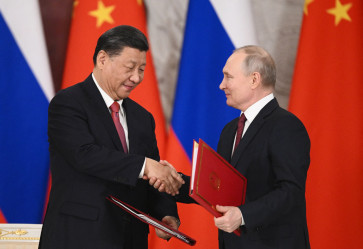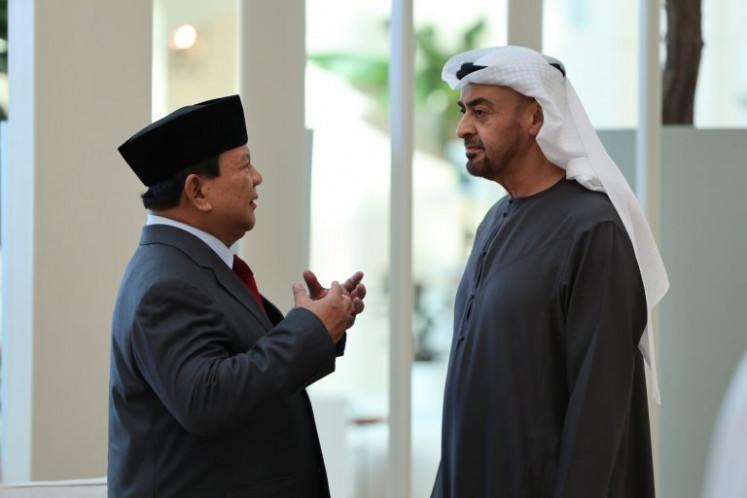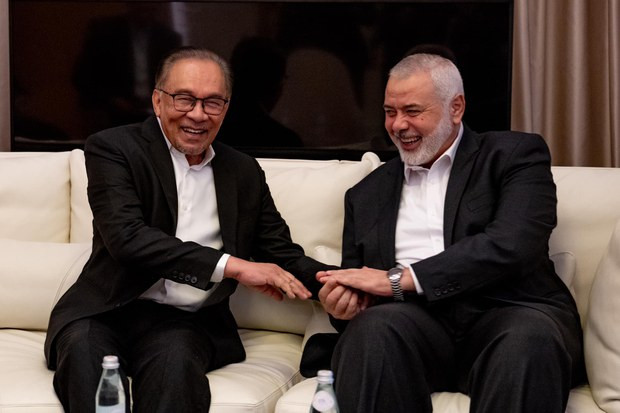Philippines offering various incentives for RI investors
During a recent visit to Jakarta, Marjorie O
Change Size

D
span>During a recent visit to Jakarta, Marjorie O. Ramos-Samaniego, governor of the Philippine’s Board of Investment, pitched her country as an investment destination to dozens of Indonesian businesspeople gathered for a summit at the Westin Hotel.
She talked about the Philippine’s tax incentives, public infrastructure projects, relatively young population and its projected 6.4 percent economic growth this year, according to the World Bank.
“At this projection, the Philippines will still outpace most major East Asian and Pacific countries,” she said in a presentation in Jakarta on Tuesday. “Except Vietnam, which is expected to grow by 6.6 percent.”
Ramos-Samaniego visited Jakarta shortly after the Philippine’s central bank reported a 4.4 percent decline in net foreign direct investment (FDI) inflows last year. Investments decreased from US$10.3 billion in 2017 to $9.8 billion last year, the first decrease since 2015.
The central bank noted that last year’s most popular sectors for foreign investment were finance, energy, air-conditioning technology, wholesale and retail trade, manufacturing and real estate. However, the board is offering incentives for financiers to invest in other sectors such as tourism and health care.
“If you’re registered with the Philippines’ Board of Investment, you’re entitled to eight years of income tax holiday and duty-free for imports of capital equipment,” said Ramos-Samaniego, adding that more information on incentives was available on the board’s website.
In recovering investment inflows, the governor was trying to secure more foreign investment from Indonesia, a country whose government is, ironically, also seeking more investment (domestic and foreign) by pitching many similar socioeconomic conditions.
Like the Philippines, Indonesia has also issued a number of fiscal incentives and other facilities to lure foreign investment.
Indonesia’s foreign investment declined 8.8 percent to Rp 392.7 trillion ($25.51 billion) last year compared to the previous year, according to the Indonesian Investment Coordinating Board (BKPM).
While Ramos-Samaniego’s investment pitch runs counter to the Indonesian government’s FDI ambition, she pointed out that investing in the Philippines would benefit Indonesian businesses as they could expand into new markets through partnerships.
Her point aligns with the Indonesian government’s call for local businesses to expand into non-traditional markets.
Indonesian Trade Minister Enggartiasto Lukita, who is under investigation by the Corruption Eradication Commission (KPK), signed a pledge in April with his Philippine counterpart, Ramon M. Lopez, to strengthen bilateral trade.
In fact, the summit at the Westin Hotel ended with a ceremonial signing of four partnerships between Indonesian and Philippine companies in the travel, food, manufacturing and finance industries.
An Indonesian travel tech startup, Passpod, for example, signed a partnership with Philippine fintech startup WeePay to run the former’s business operations in the latter’s country.
However, even though Passpod managed to enter the Philippines, Indonesia’s tech unicorn Go-Jek was barred from entry earlier this year because Go-Jek’s local subsidiary — Velox Technologies — did not meet the minimum 60 percent local ownership requirement to secure a ride-hailing license.
Go-Jek’s case serves as a reminder that the Philippines, like Indonesia, still imposes foreign ownership restrictions in certain economic sectors. Such restrictions are partly responsible for limiting foreign investment.
Overall, Indonesian net investment into the Philippines reached $1.3 million last year, according to the Philippine’s central bank. In contrast, the Philippines’ investment into Indonesia reached $15.4 million in the same period, according to BKPM.
Shinta Kamdani, deputy chairwoman for international affairs at the Indonesian Chamber of Commerce and Industry (Kadin), expressed support for stronger bilateral trade ties, saying that the manufacturing sector (particularly of automobiles), geothermal energy and tourism were three particularly lucrative sectors.
She said a good example of bilateral business collaboration was how Filipino retailer SM Markets runs Indonesian minimarket chain Alfamart’s operation in the former’s country.
According to the Philippines’ Department of Trade and Industry, an Alfamart-SM Market agreement was among 11 bilateral business partnerships signed during a networking session at Davao City in April 2017.
Shinta gave another example in how a Philippine conglomerate, the Ayala Group, acquired the Darajat and Salak geothermal fields in West Java from Chevron in April 2017. She said she expects the acquisition to expose Ayala’s renewable energy technology to Indonesia while Ayala itself expands operations.
“[Kadin] definitely looks for both inbound and outbound [investments], but what’s most important for us is establishing partnerships, establishing cooperation business-to-business. Either investing here or in the Philippines, we need to open more doors to bring in more players,” she said.









